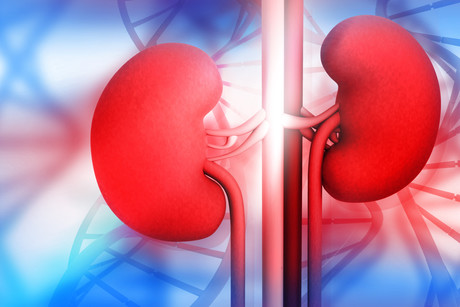Oral antibiotics increase kidney stones risk

New research has identified antibiotics that are linked to an increased risk of developing kidney stones, particularly in children.
For reasons that are unclear, the prevalence of kidney stones — or nephrolithiasis — has increased 70% over the last 30 years, with the most disproportionate increase experienced by children and adolescents. A team led by Dr Gregory Tasian and Dr Michelle Denburg of The Children’s Hospital of Philadelphia examined whether the use of antibiotics might affect individuals’ risk of developing the condition.
They determined the association between 12 classes of oral antibiotics and nephrolithiasis in a population-based study that encompassed 641 general practices and data for over 13 million children and adults from 1994 to 2015 in the United Kingdom. The team matched 25,981 patients with nephrolithiasis to 259,797 controls by age, sex and practice at the date of diagnosis (referred to as ‘the index date’).
Exposure to any one of five different antibiotic classes three to 12 months before the index date was associated with nephrolithiasis. Risks were increased as follows:
- 2.3 times for sulfas
- 1.9 times for cephalosporins
- 1.7 times for fluoroquinolones
- 1.7 times for nitrofurantoin/methenamine
- 1.3 times for broad-spectrum penicillins.
The risk of nephrolithiasis decreased over time, but it remained elevated 3–5 years after the antibiotic prescription. Also, the risk was greatest for exposures at younger ages. Previous research has shown that children receive more antibiotics than any other age group, and 30% of antibiotics prescribed during outpatient care visits are inappropriate.
“These findings demonstrate that exposure to certain antibiotics is a novel risk factor for kidney stones and that the risk may be greatest when exposure to these antibiotics occurs at younger ages,” said Dr Tasian. “Consequently, these results suggest that the risk of nephrolithiasis may be decreased by reducing inappropriate antibiotic exposure and choosing alternative antibiotics, particularly for those patients who are at increased risk of stone formation.”
The findings appear in an upcoming issue of the Journal of the American Society of Nephrology (JASN).
$1bn vaccine and antivenom manufacturing facility opens
A $1 billion cell-based influenza vaccine and antivenom manufacturing facility has opened in...
National concussion clinical guidelines now available
The first Australia- and New Zealand-specific guidelines for all forms of concussion — from...
Doctors criticise "risky prescribing agenda"
The AMA and RACGP have expressed disappointment in the Pharmacy Board of Australia's...




![[New Zealand] Transform from Security Awareness to a Security Culture: A Vital Shift for SMB Healthcare — Webinar](https://d1v1e13ebw3o15.cloudfront.net/data/89856/wfmedia_thumb/..jpg)
![[Australia] Transform from Security Awareness to a Security Culture: A Vital Shift for SMB Healthcare — Webinar](https://d1v1e13ebw3o15.cloudfront.net/data/89855/wfmedia_thumb/..jpg)




